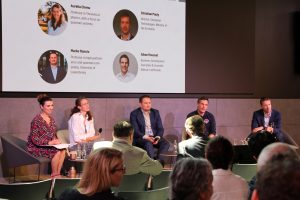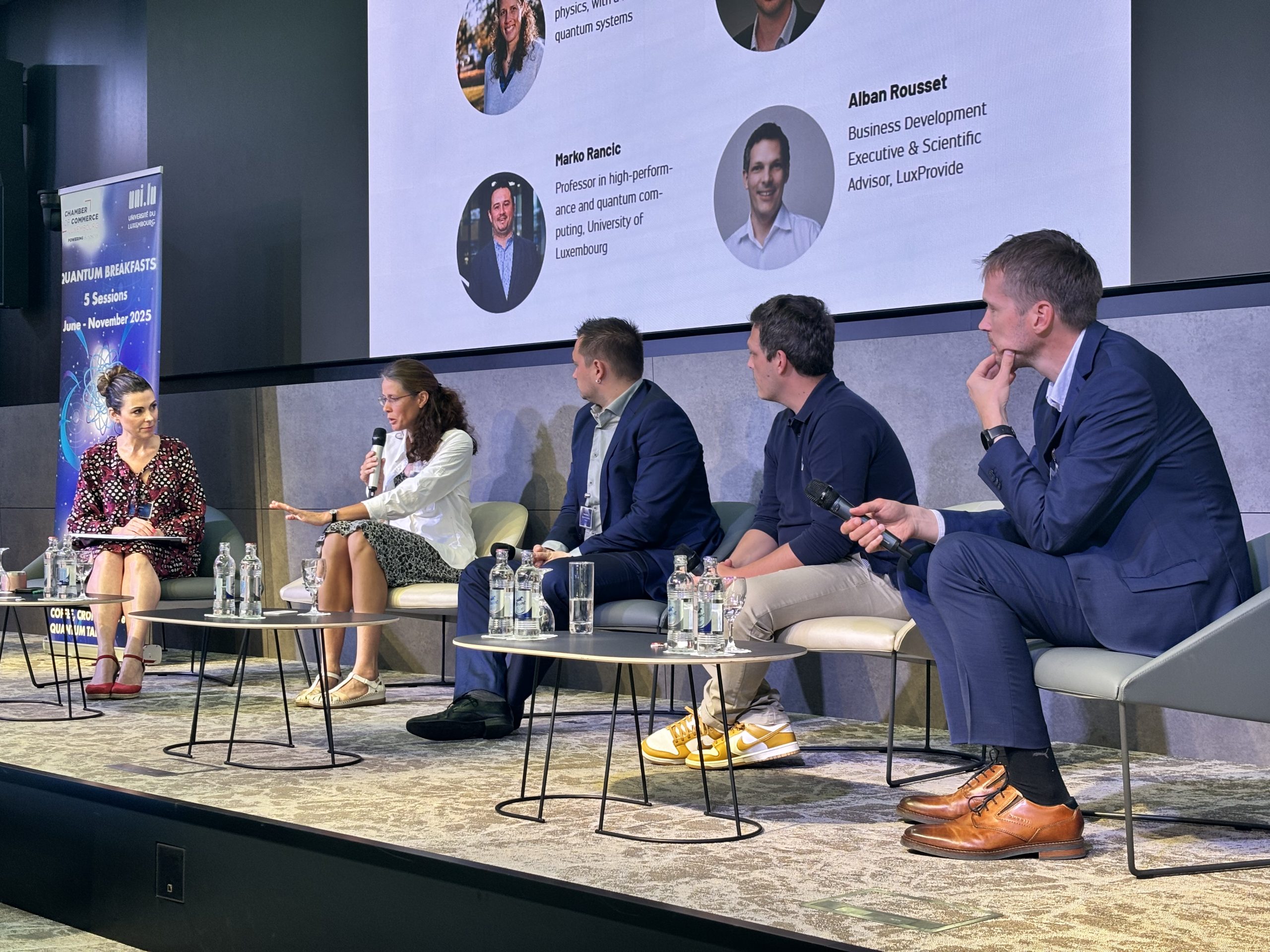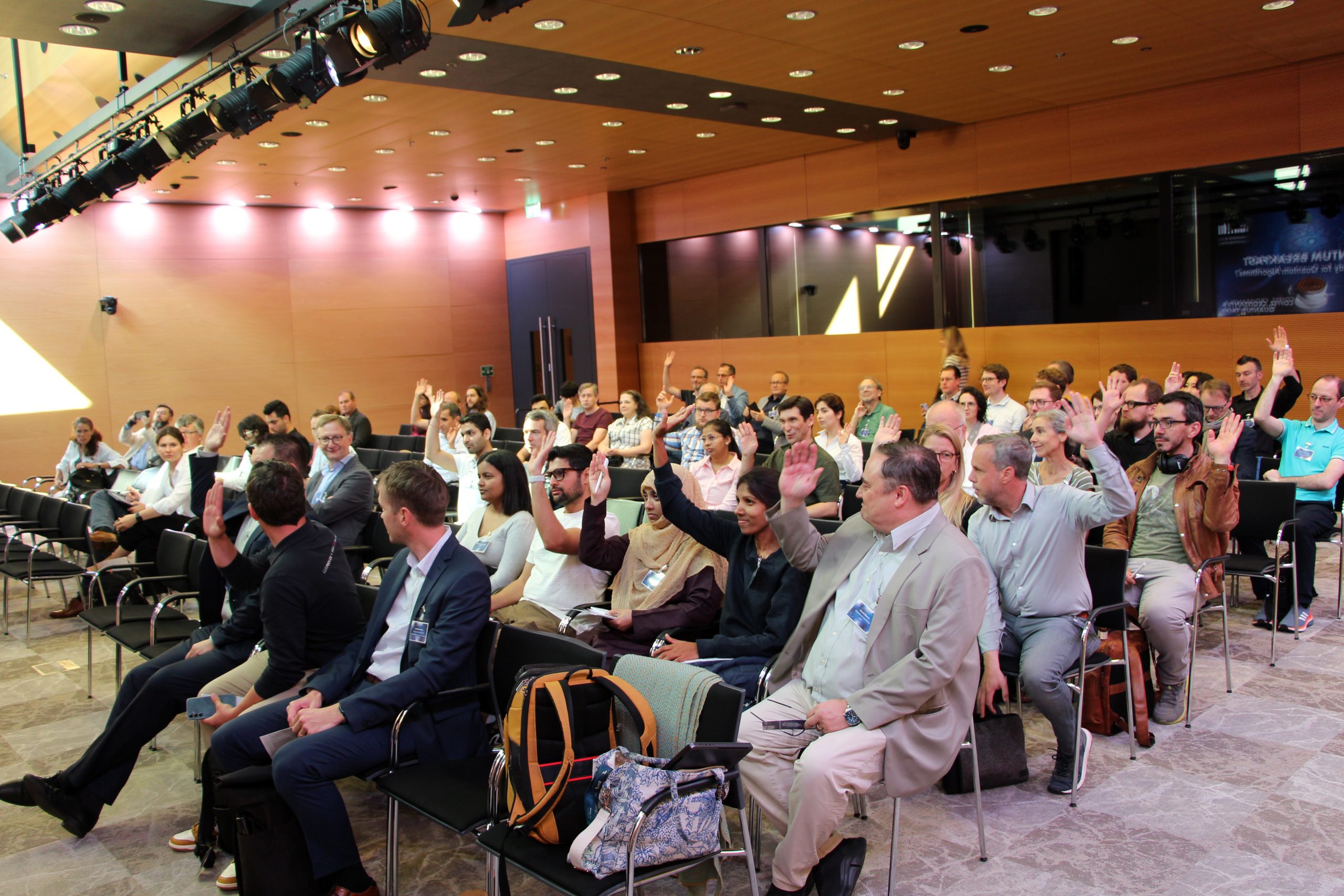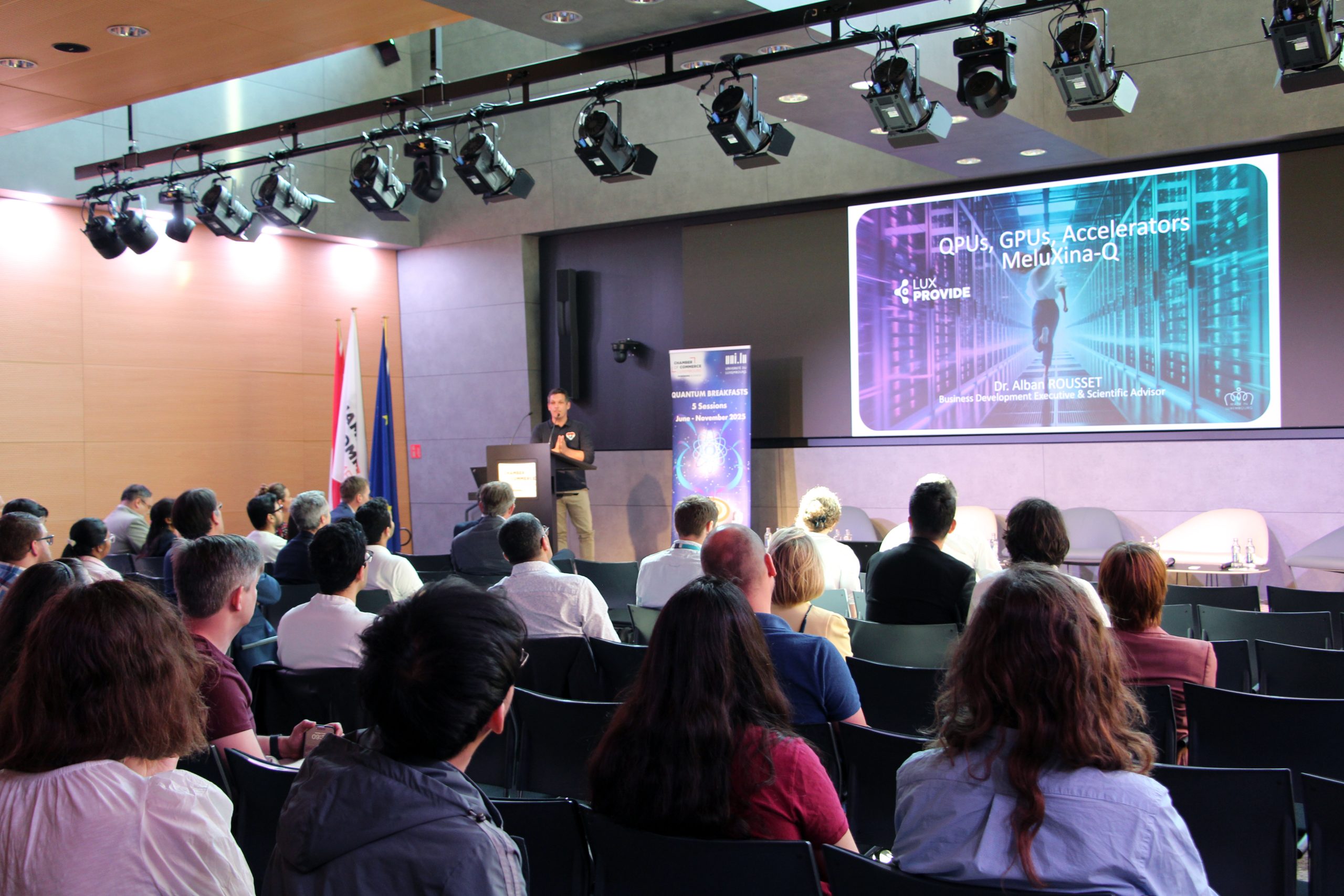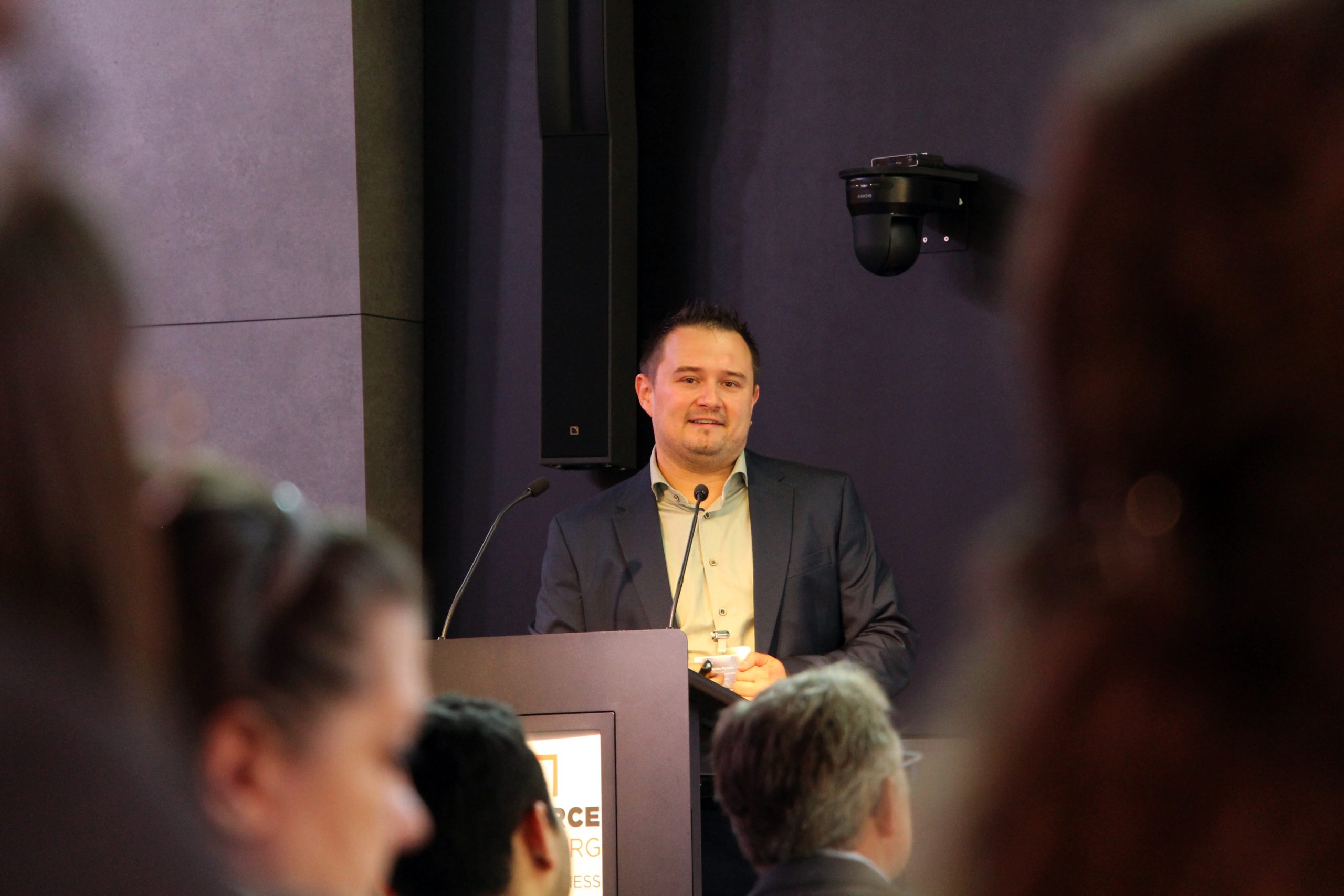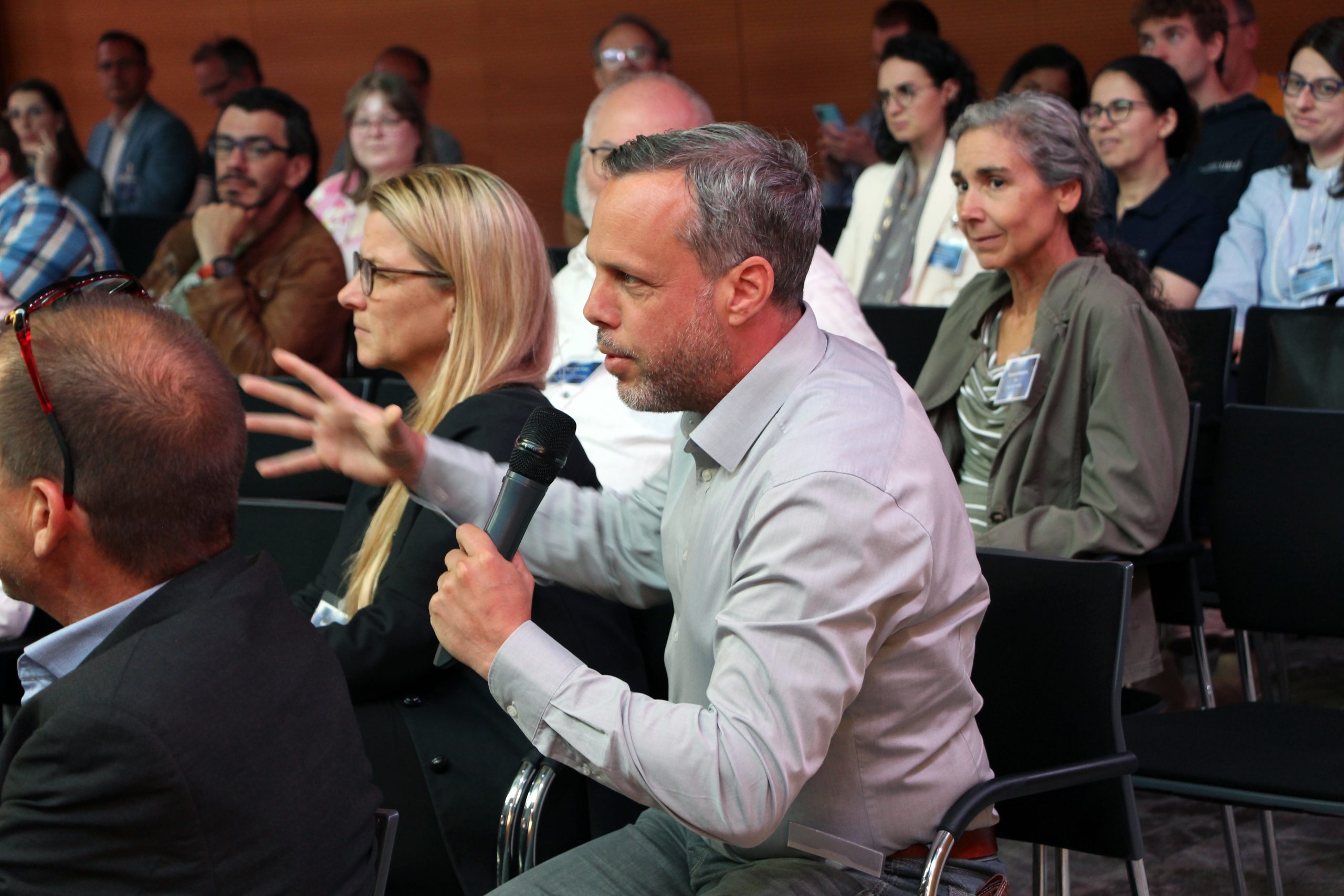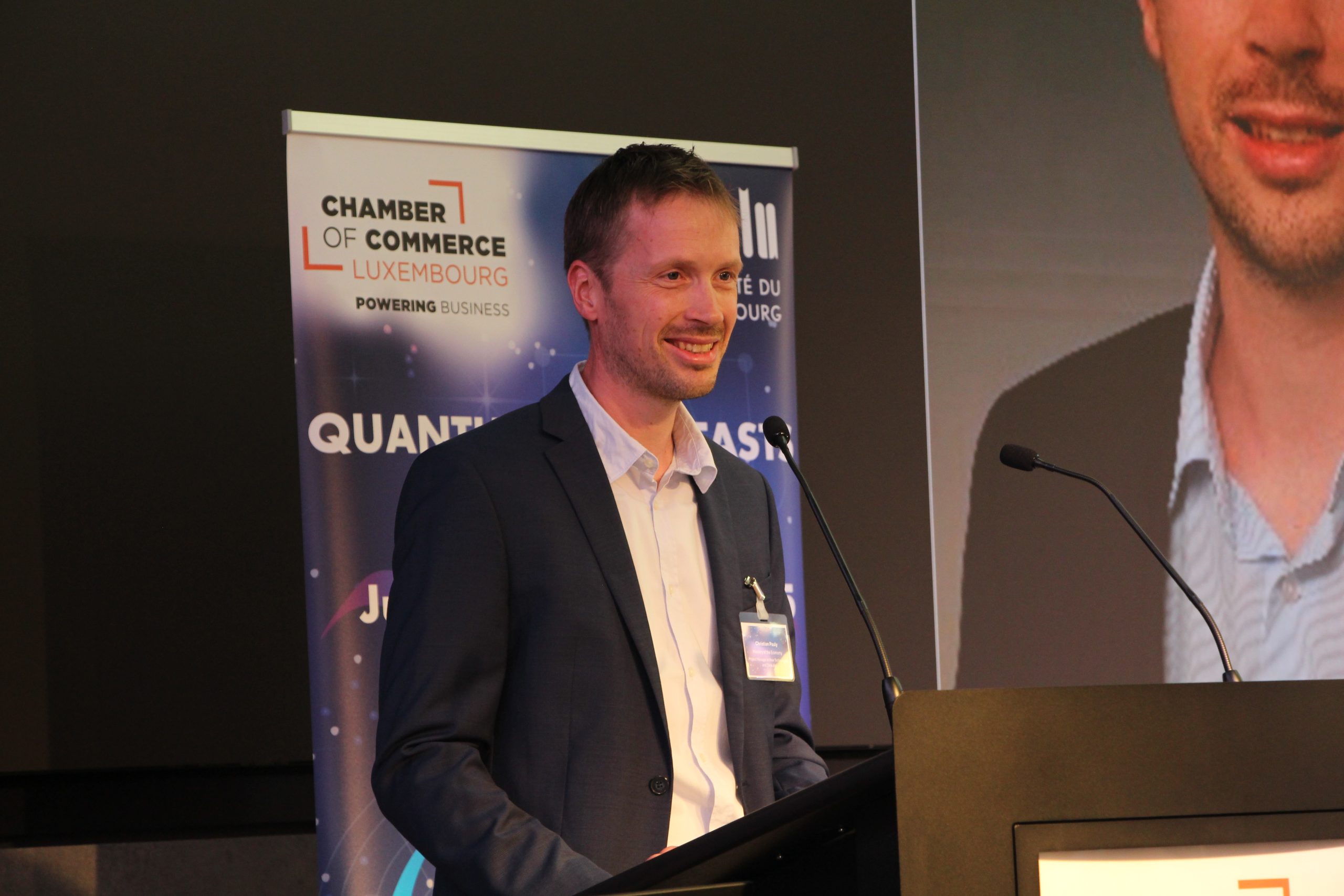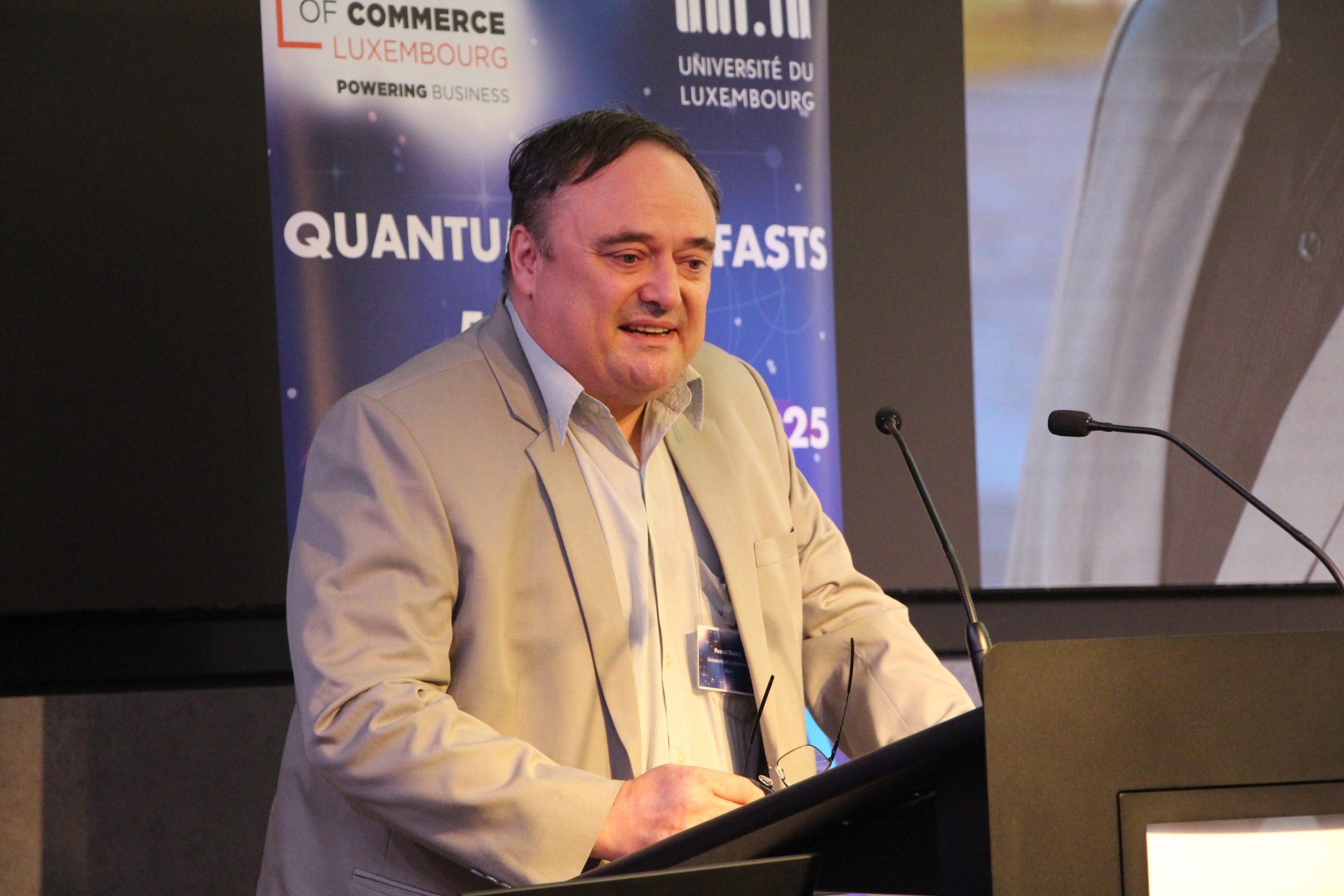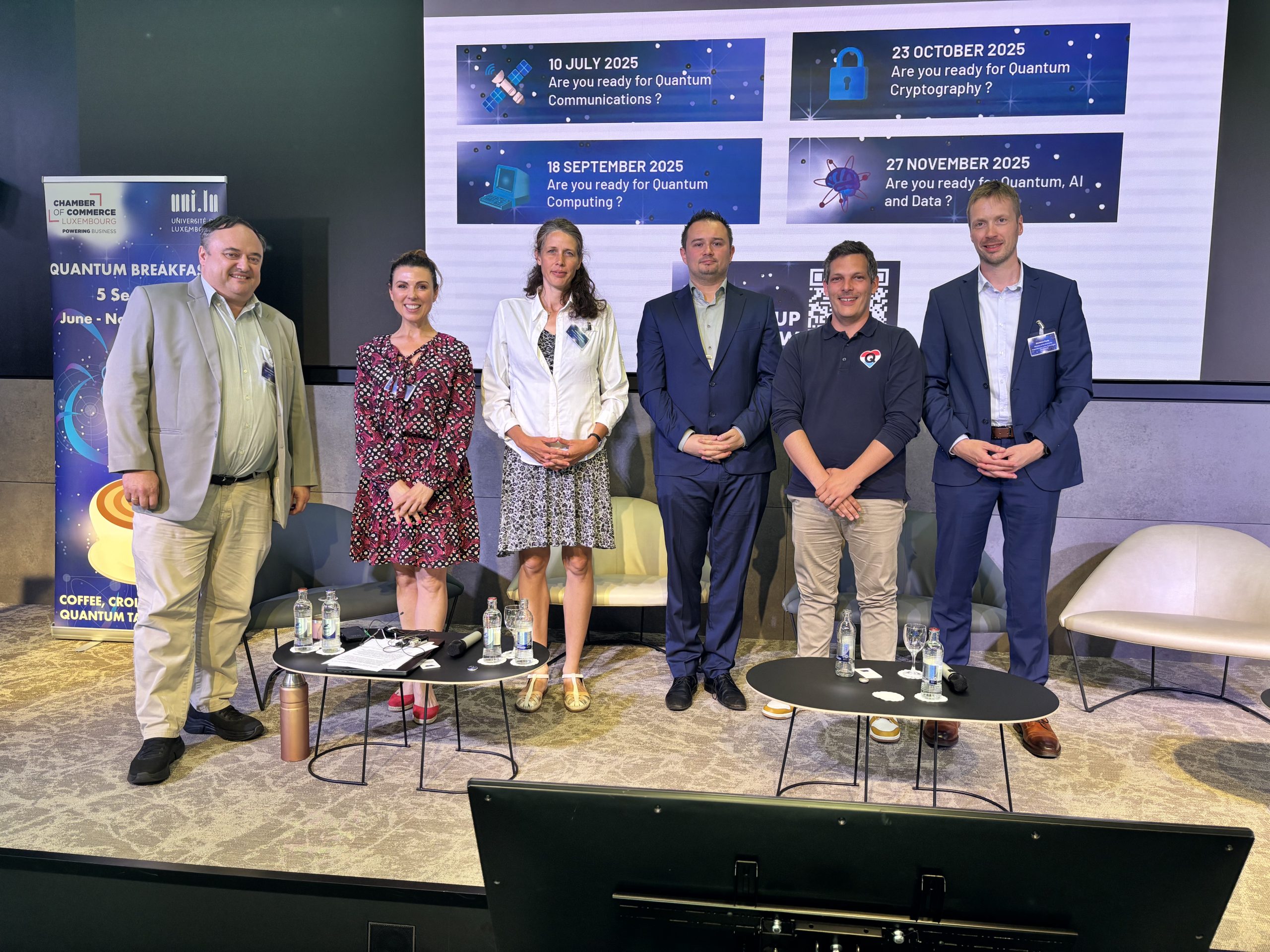Imagine a world where quantum computing solves problems that even our most powerful supercomputers can’t handle today. This technology could help design new medicines with perfect precision, build smarter AI systems, or even model climate change accurately.
This isn’t science fiction anymore. Quantum algorithms are becoming reality, as experts recently discussed at the University of Luxembourg’s first Quantum Breakfast event.
“Luxembourg is the perfect place to build a bridge between scientific breakthroughs and real-world applications,” said Professor Pascal Bouvry, Dean of the Faculty of Science, Technology and Medicine. This ambition to turn cutting-edge research into practical solutions is shaping Luxembourg’s growing role in the quantum ecosystem.
What exactly are quantum algorithms?
At the heart of every computer we use today are ‘bits’ – tiny switches that are either ON or OFF. They’re like light switches in your home: definitively in one state or the other. But quantum computers operate on something far more mystical: qubits.
Picture this: a qubit isn’t just 0 or 1; it can be both at the same time. This concept is called superposition, a purely quantum mechanical phenomenon. Consider the famous thought experiment known as Schrödinger’s cat. In this scenario, a cat is sealed in a box with a device that might or might not release poison based on a random quantum event. According to quantum mechanics, until someone opens the box to check, the cat exists in a state of being both alive and dead simultaneously. A qubit works similarly: it exists in multiple states at once until it’s observed or measured, at which point it “chooses” a definite state.
But quantum computing has another powerful feature. Qubits can also become entangled. When this happens, two or more quantum objects connect so deeply that changing one instantly affects the other, regardless of distance. This strange connection enables quantum parallelism. It’s like having a superpower that lets quantum computers test many solutions at the same time.
What’s the advantage of quantum?
Simply put, quantum algorithms are designed to be faster. Not faster in terms of clock speed, but in the number of operations they need to perform to calculate something. This efficiency stems from their ability to exploit superposition and entanglement, tackling problems that are practically impossible for classical computers.
This leads to breakthroughs in areas where even today’s most powerful supercomputers struggle. Quantum algorithms can solve complex optimisation problems like planning the best routes or managing investment portfolios. In chemistry and materials science, they simulate molecules and predict how they interact. This helps scientists discover new drugs and materials faster.
For data-heavy work like AI and fraud detection, quantum search algorithms work much faster than traditional methods. Weather modelling becomes more accurate. Financial forecasting improves dramatically. These quantum computers can solve complex equations more efficiently, leading to better predictions and analysis.
Can quantum help make our future more secure?
Digital security faces both challenges and opportunities from quantum computing. Current encryption methods rely on math problems that regular computers find extremely difficult to solve. But quantum computers can crack these codes much faster. This threatens our current security systems.
Christian Pauly, Director of Disruptive Technologies at the Ministry of the Economy, notes the global competition for talent and the need for expanded hardware infrastructure as key challenges in preparing for this quantum transition.
Indeed, the threat has triggered a worldwide push toward new protection methods. Scientists call this post-quantum cryptography. Researchers, governments, and companies are racing to prepare for a quantum-secure future by adopting these new cryptographic standards.
But quantum technology also creates new ways to stay safe. Take quantum key distribution as an example. This method lets two people share secret codes with amazing security. If someone tries to spy on the quantum-encrypted message, the quantum properties automatically change. Both parties instantly know someone attempted to break in.
It’s important to note that quantum computers won’t replace regular computers entirely. Instead, they’ll work in synergy, with quantum devices handling the heavy computational work that overwhelms traditional machines. During the event, Prof. Marko Rancic from the university’s High-Performance and Quantum Computing group demonstrated how classical and quantum systems can complement each other—bridging older technologies like lasers and superconductors with new advances in computing, sensing, and communication.
Luxembourg’s quantum future
But how close are we to turning these scientific breakthroughs into real-world applications? And what role can Luxembourg play in this rapidly evolving quantum landscape?
The country has clear strengths in quantum communication and interdisciplinary research. These advantages create promising paths for quick economic benefits. Alban Rousset, Business Development Executive and Scientific Advisor at LuxProvide, plays a key role in this effort. LuxProvide operates the powerful MeluXina Supercomputer and MeluXina AI, and is preparing to launch the MeluXina Quantum platform—an initiative that promises to further strengthen Luxembourg’s presence in quantum technology.
‟ We’re not just preparing for the quantum future. We’re building it together.”
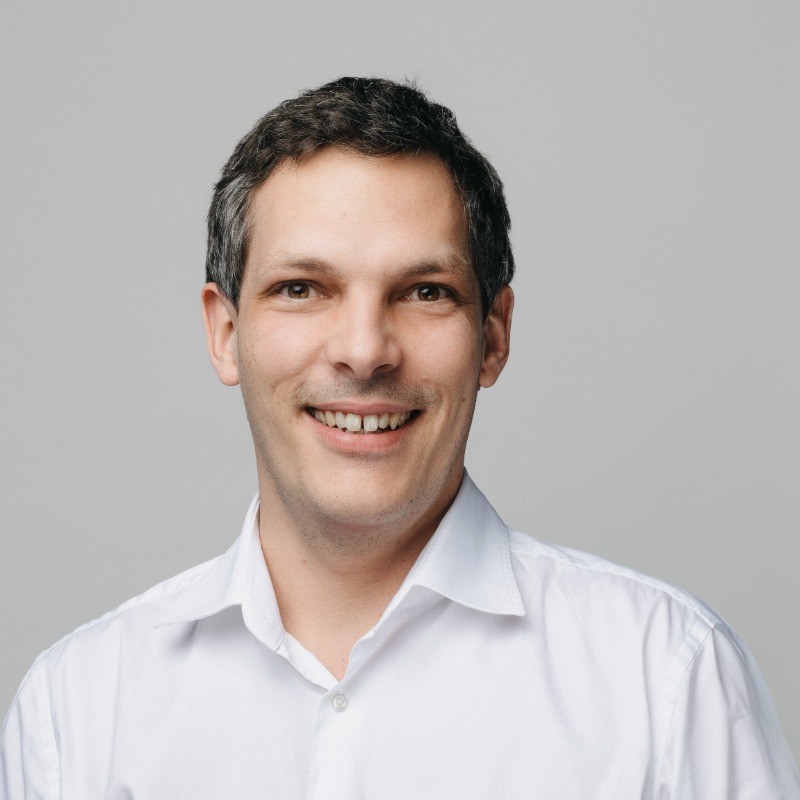
Business Development Executive and Scientific Advisor at LuxProvide
The country’s ecosystem also attracts talent. Prof. Aurélia Chenu focuses on quantum systems and highlighted Luxembourg’s advantages: “We have access to solid national funding and maintain strong European partnerships. This helps us actively connect researchers with industry partners.”
Luxembourg invests heavily in cloud infrastructure, AI, data strategies, and quantum technologies. The goal is clear: become a secure and innovative European hub.
Join the next Quantum Breakfast!
With technology this transformative and complex, making it accessible and understandable to the general public is crucial. This is the driving purpose behind the 2025 Quantum Breakfasts. More than just a series of talks, these events are about connecting the dots between research, industry, and national strategy.
To build on this, the next Quantum Breakfast will take place on 10 July at the Chambre de Commerce, shining a spotlight on Quantum Communications.
